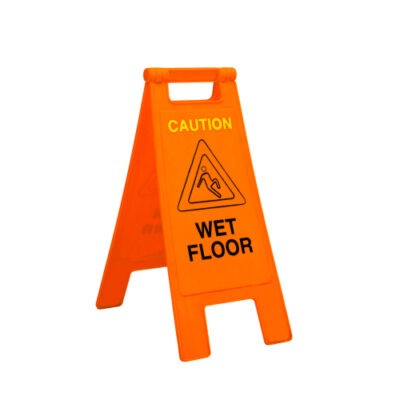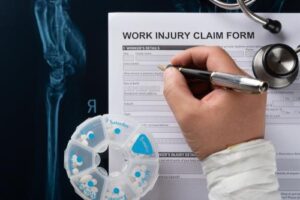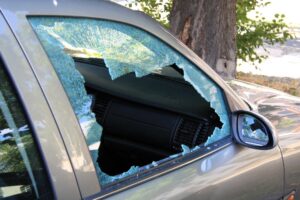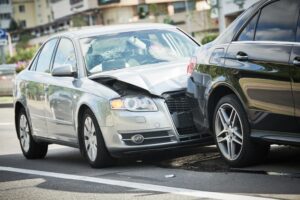
A fun night of dining out at Texas Roadhouse can turn dark quickly if employees are not careful. Various hazards may lead to a slip and fall accident that leaves the victim with medical cost, lost income, mental anguish, disfigurement, and more. If you were injured in a similar way, don’t let it go without speaking to a Texas Roadhouse slip and fall accident and injury lawyer in Georgia first.
John Foy & Associates has helped countless slip and fall victims win compensation after being injured on someone else’s property. We know what it takes to win these types of cases, even when you’re up against a large chain restaurant like Texas Roadhouse. Call us today at (404) 400-4000 or contact us online to schedule a FREE consultation.
What to Know About Texas Roadhouse in Georgia
Texas Roadhouse is a restaurant chain that specializes in hand-cut steaks and ribs. They were founded in Clarksville, Indiana, in 1993, and have since grown to 560+ restaurants throughout 49 of the United States. They also have locations in other counties like Mexico, Saudi Arabia, and the Philippines.
Other menu items at Texas Roadhouse include burgers, sandwiches, salads, country dinners, chicken, and fish. Each table has buckets of free peanuts and hot rolls for customers to enjoy. Georgia cities with Texas Roadhouse locations include Marietta, Newnan, Snellville, Macon, Cumming, Pooler, and more.
Texas Roadhouse management and employees have a legal duty to keep the premises safe for customers. If they do not do that, someone can become injured as a result of the store’s negligence. If you were injured at one of these locations, you may have a premises liability case.
Get the strong arm
How to Know If You Have a Valid Slip and Fall Case Against Texas Roadhouse
Several factors must exist for there to be a valid slip and fall case in Georgia. Here are some of the most important questions to ask (and that a slip and fall lawyer will use to examine the validity of your case).
Did a Hazardous Condition Exist on the Property?
Before a property occupier like Texas Roadhouse can be liable for an accident, there must have been a hazardous or dangerous condition present. Common dangerous conditions at Georgia restaurants include:
- Wet and slippery floors
- Uneven flooring, pavement, or sidewalks
- Spilled beverages or food items
- Grease or oil on the floor
- Potholes
- Snow, ice, or rain that has been tracked inside
- Poor or inadequate lighting
Did an Employee Cause the Condition?
Besides an unsafe condition existing, an employee must have either caused or failed to remove the condition. A restaurant’s duty is to keep the premises and their approaches safe—and that includes avoiding slip and fall hazards. For example, employees must be careful to put out “wet floor” signs when mopping, keep floors clear of hazards, and salt walkways near entrances when there is excessive ice or snow.
If a manager or employee was negligent by causing or allowing a condition to persist, you likely have a valid case.
Did the Manager or Employee Have Enough Time to Notice the Hazard?
Although employees are responsible for recognizing dangerous conditions, they must have a reasonable amount of time to do so. You will need to be able to show that the hazard that caused your accident was present long enough for a manager or employee to have noticed it and taken action to fix it.
This element is often one of the hardest to prove in a slip and fall case. The restaurant may try to say that there wasn’t sufficient time to have known about the dangerous condition. This is where a slip and fall lawyer will work to gather helpful evidence, such as surveillance footage that shows the hazard or pictures of the accident scene.
Did the Restaurant Provide a Warning?
If Texas Roadhouse’s manager or employees become aware of a hazardous condition, they have a duty to either:
- Fix/clean up the condition right away or
- Do something to warn customers about the condition
Going back to the example of an employee mopping the floor, them putting out a “wet floor” sign would be the responsible action to take. They cannot immediately prevent the floor from being wet and slippery, but they can warn customers that a hazard is present.
If employees failed to provide a warning for a hazard that couldn’t be immediately remedied, they are likely at fault for any slip and fall accident that resulted.
Was the Hazard Open and Obvious?
Under Georgia Code § 51-11-7, plaintiffs in personal injury cases also have a “ordinary care” to avoid hazards. If it’s possible to argue that the hazard was open and obvious enough to have been reasonably avoided, you might have trouble with your claim. You’ll need to show that the hazard could not have been avoided even while being careful.
If it turns out you are partially at fault in the accident, you may still be able to recover a portion of your damages. In Georgia, you can still seek compensation if you are less than 50% at fault. To learn more, speak with a Texas Roadhouse slip and fall lawyer in Georgia today.
Damages You Can Claim for a Slip and Fall at Texas Roadhouse
If you can show that the restaurant was negligent in your accident and is liable for your damages, you are eligible for compensation for any losses you face because of the accident. Those damages might include:
- Medical bills
- Prescription medications
- Physical therapy
- Rehabilitation
- Lost wages
- Lost earning capacity
- Property damage
- Mental anguish
- Travel to and from medical appointments
To know exactly what your legal options are after a slip and fall accident, contact an experienced slip and fall lawyer as soon as you can. The sooner you can get started on your case, the better.
Get a Free Consultation with a Texas Roadhouse Slip and Fall Accident and Injury Lawyer in Georgia Today
At John Foy & Associates, we know how to build a strong injury claim when a slip and fall accident happens at a restaurant like Texas Roadhouse. It’s risk-free to work with us because we don’t charge a fee unless we win you money. To schedule a FREE consultation today, call us at (404) 400-4000 or contact us online.
404-400-4000 or complete a Free Case Evaluation form





